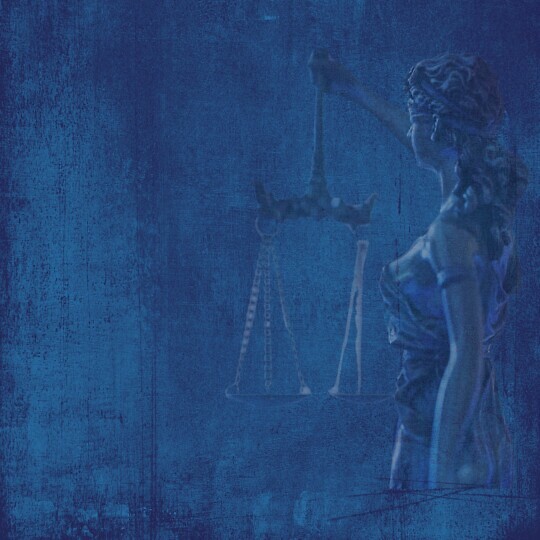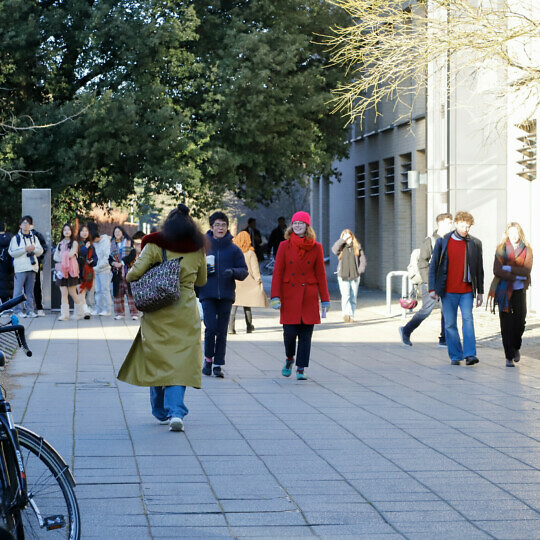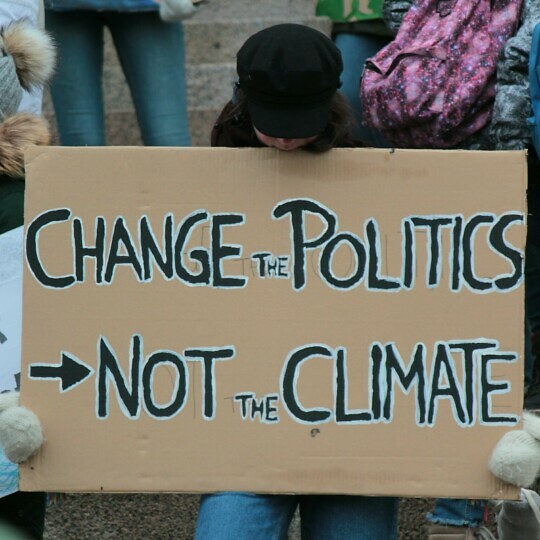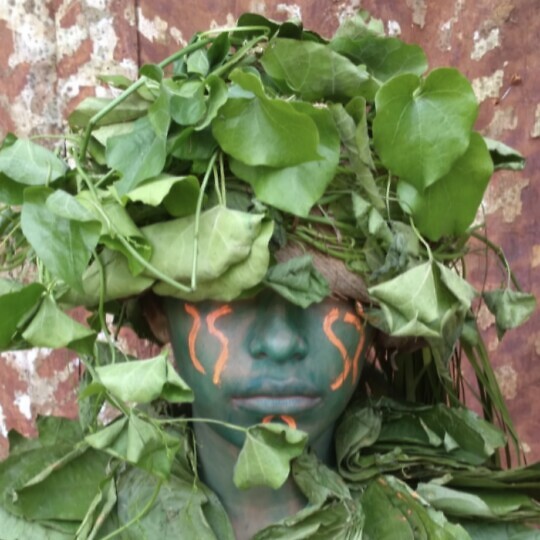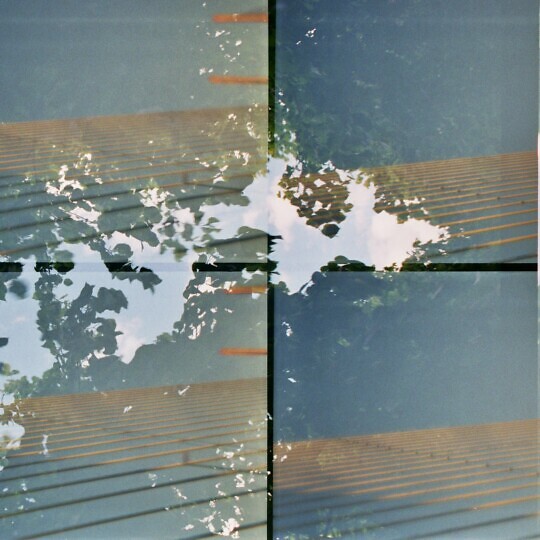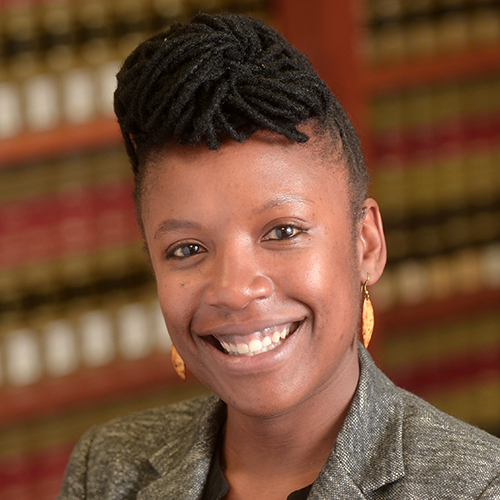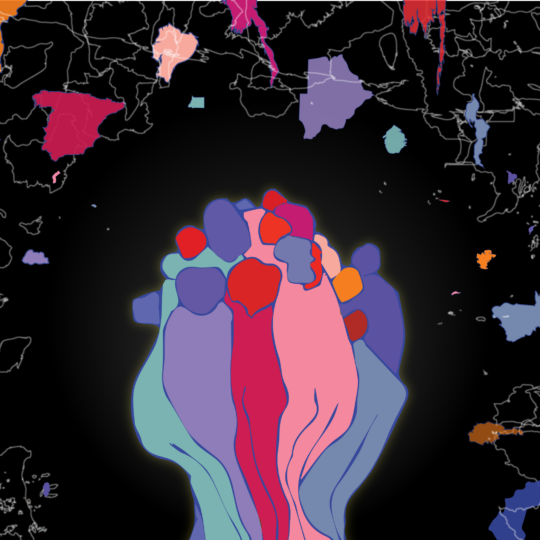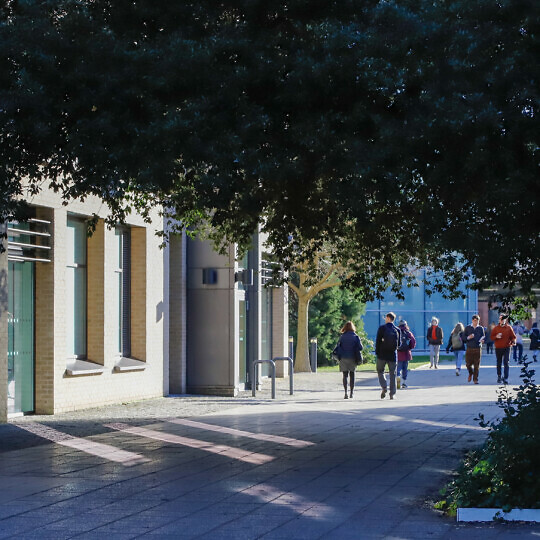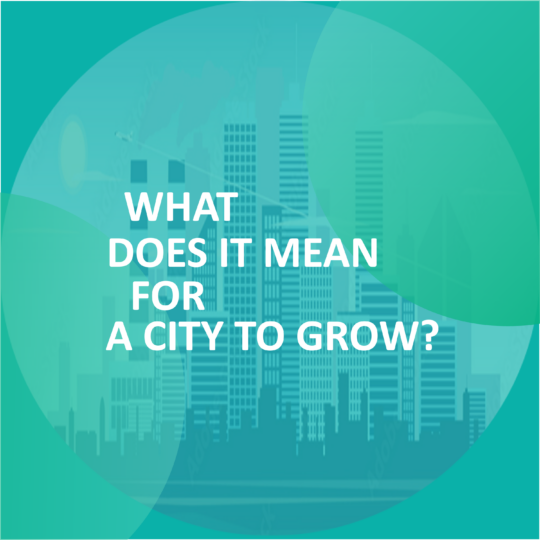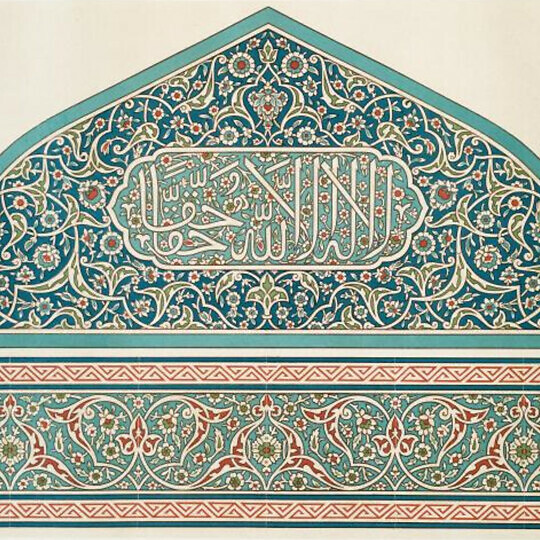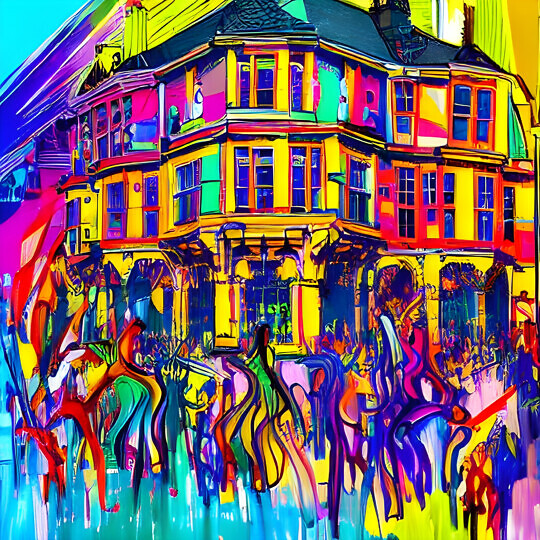| 19 Mar 2015 - 20 Mar 2015 | All day | CRASSH, Alison Richard Building, 7 West Road, CB3 9DT - SG1&2 | |
- Description
- Programme
- Abstracts
Description
Register online via the link at the top right hand side of this page
Conference fee: £50 (full), £25 (students) – includes lunch, tea/coffee
Deadline: Friday 13 March 2015
Twitter Hashtag: #TotalArchive
Conveners
Boris Jardine (University of Cambridge)
Matthew Drage (University of Cambridge, PhD candidate)
Ruth Horry (University of Cambridge)
Summary
The complete system of knowledge is a standard trope of science fiction, a techno-utopian dream and an aesthetic ideal. It is Solomon’s House, the Encyclopaedia and the Museum. It is also an ideology – of Enlightenment, High Modernism and absolute governance.
Far from ending the dream of a total archive, twentieth-century positivist rationality brought it ever closer. From Paul Otlet’s Mundaneum to Mass-Observation, from the Unity of Science movement to Isaac Asimov’s Encyclopedia Galactica, from the Whole Earth Catalog to Wikipedia, the dream of universal knowledge dies hard. These projects triumphantly burst their own bounds, generating more archival material, more information, than can ever be processed. When it encounters well defined areas – the sportsfield or the model organism – the total archive tracks every movement of every player, of recording every gene and mutation. Increasingly this approach is inverted: databases are linked; quantities are demanded where only qualities existed before. The Human Genome Project is the most famous, but now there are countless databases demanding ever more varied input. Here the question of what is excluded becomes central.
The total archive is a political tool. It encompasses population statistics, GDP, indices of the Standard of Living and the international ideology of UNESCO, the WHO, the free market and, most recently, Big Data. The information-gathering practices of statecraft are the total archive par excellence, carrying the potential to transfer power into the open fields of economics and law – or divest it into the hands of criminals, researchers and activists.
Questions of the total archive engage key issues in the philosophy of classification, the poetics of the universal, the ideology of surveillance and the technologies of information retrieval. What are the social structures and political dynamics required to sustain total archives, and what are the temporalities implied by such projects?
In order to confront the ideology and increasing reality of interconnected data-sets and communication technologies we need a robust conceptual framework – one that does not sacrifice historical nuance for the ability to speculate. This conference brings together scholars from a wide range of fields to discuss the aesthetics and political reality of the total archive.
Sponsors



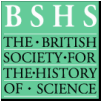
This student-led conference is supported with funding from the School of Humanities and Social Sciences, by the Centre for Research in the Arts, Humanities and Social Sciences (CRASSH) and the Department of History and Philosophy of Science at the University of Cambridge, the Arts Council England, the Wellcome Trust and the British Society for the History of Science.
Accommodation for speakers selected through the call for papers and non-paper giving delegates
We are unable to arrange or book accommodation, however, the following websites may be of help.
Visit Cambridge
Cambridge Rooms
University of Cambridge accommodation webpage
Administrative assistance: events@crassh.cam.ac.uk
Programme
| DAY 1 - Thursday 19 March | |
| 8.30-9.10 | Registration |
| 9.10-9.30 | WELCOME AND INTRODUCTION
|
| 9.30-11.00 | CONSTRUCTING TOTAL ARCHIVES
Chair: Helen Curry (University of Cambridge) |
| 11.00-11.30 | Tea and coffee |
| 11.30-13.00 | THE OPEN PARADIGM
Chair: Jon Agar (University College London) |
| 13.00-14.00 | Lunch |
| 14.00-15.30 | VISUALISING TOTALITIES
Chair: Ruth Horry (University of Cambridge) |
| 15.30-16.00 | Tea and coffee |
| 16.00-17.00 | KEYNOTE 1
Chair: Jenny Bangham (Max Planck Institute) |
| 17.00-18.00 | Break |
| 18.00-19.00 |
Chair: Cadence Kinsey |
| DAY 2 - Friday 20 March | |
| 9.30-11.00 | UNIVERSAL STRUCTURES
Chair: Richard Staley (University of Cambridge) |
| 11.00-11.30 | Tea and coffee |
| 11.30-13.00 | THE ADMINISTRATIVE SELF
Chair: Rhodri Hayward (Queen Mary, University of London) |
| 13.00-14.00 | Lunch |
| 14.00-15.30 | LIBRARIES, ARCHIVES AND COMPLETENESS
Chair: Ed Potten (Cambridge University Library) |
| 15.30-16.00 | Tea and coffee |
| 16.00-17.00 | KEYNOTE 2
Chair: Rebecca Lemov (Harvard University) |
| 17.00-17.15 | Closing remarks |
Abstracts
Alison Bashford (University of Cambridge): Knowing World Population
This paper explores the space between quantity and quality for those twentieth-century total archivists who counted all humans in their past and their present, often with predictive and directive ambitions for human and even posthuman futures. Is it really the case that the total archive demanded and produced quantity, where only qualities existed before? From eugenics to ecology, via demography, the project of knowing and mapping world population fed some total system dreams (“Whole Earth,” “Spaceship Earth”). Other informational devices that were once filled with precocious Big Data promise seemed to fail, even on their own terms. Here I scrutinize the aspirational archive of one of high modernity’s lowest endeavors: the eugenic family tree.
Reuben Binns (University of Southampton): Remembering Why We Forgot; Wikipedia's Biography of Living Persons Policy
“Imagine a world where every person has access to the sum total of human knowledge”, said the founder of Wikipedia in 2004. Allowing anyone to reference anything, and offering the collected results to everyone, has been a wild success. But it has recently come into conflict with the so-called 'right to be forgotten'. EU citizens now have a (qualified) right to request that their personal information be de-listed when their name is searched online.
Through an analysis of the encyclopaedia's existing editorial processes, I argue that this conflict is less fundamental and more complex than it first appears. The crowd-sourced encyclopedia may already have sufficient resources to navigate between privacy and the dream of the total archive, to balance remembering and forgetting.
Pierre Chabard (Ecole nationale supérieure d'architecture Paris-La Villette): The Universal and the Self: Patrick Geddes' Architectural Mediations of Total Knowledge
Punctuated by the great Universal Exhibitions, the period 1870–1914 saw numerous attempts at classifying or mediating total knowledge. While reflecting the ideals of the time, the encyclopaedic project of Patrick Geddes (1854–1932), evolutionist biologist, generalist thinker and urban reformist, appears however as greatly original. At the same time decentralizing, vulgarizing and emancipating, this project was formulated in the last two decades of the nineteenth century in Edinburgh, at a certain distance from the central scenes of political, academic or religious power. Suspicious of books, Geddes always privileged visual and spatial ways of communication and embodied his project in architectural forms: in particular, a seven-storey building that he acquired in 1892 and called the “Outlook Tower”. Dominating Old Edinburgh and offering a circular panorama towards the city landscape, it became a centre for the reform activities he had launched in the mid-1880s in this neighbourhood, which was at this time one of the most crowded slums in Europe. Both a civic observatory, a social settlement and an “index museum”, the Outlook Tower was above all conceived as an architectural “prism” giving each individual visitor personal access to universal knowledge, in a scalar progression from local to global.
My paper will deal with this architectural encyclopaedia in its relationship with other contemporary geddesian projects: firstly, the development of the “civic survey”, a protocol of multidisciplinary survey of each city, which can be seen as a producer of an open and operative archive of it; and, secondly, the design, distribution, furnishing and decoration of his own apartment in Ramsay Gardens, near to the Outlook Tower, which he carefully organized as an introspective (even psychological) tool of exploration of the inner world, in a clear balance, in his mind between the flat and the tower, inlook and outlook.
Lorraine Daston (Max Planck Institute for the History of Science / University of Chicago): Big Science, Big Humanities, and the Immortal Archive in the 19th Century
Big Science – and before that, Big Humanities – were invented in the nineteenth century, and what was big about both of them were their ambitions to create the archives of the future. Two of the largest and longest of these projects were the Corpus Inscriptionum Latinarum, a collection of all extant Latin inscriptions from the territories covered by the ancient Roman empire, and the Carte du Ciel, an astrophotographic map of all stars visible from earth circa 1900 down to the fourteenth magnitude. Both were expressions of the rising prestige and authority of the sciences – but also of the dark side of accelerating scientific progress in the mid-nineteenth century. Sooner or later, every scientific doctrine would give way to another. Only the archives endured, a legacy of present science to its posterity.
Matthew Drage (University of Cambridge): Mystical Empiricism / Empirical Mysticism: Mindfulness-Based Cognitive Therapy and the Limits of Human Knowledge
In this paper I outline a recent and remarkable episode in the history of British psychotherapy. Between 1990 and 1994, it became possible for British cognitive psychology and its clinical expressions to absorb a nexus of concepts, practices and institutional arrangements closely bound to Anglo-American Buddhism. This absorption gave birth to Mindfulness Based Cognitive Therapy (MBCT), a psychotherapeutic intervention which has since been brought fully into the biomedical – and, indeed, mass-cultural – mainstream. MBCT, I suggest, was made possible by the intersection of an array of total archives and universal knowledge schemes including logical positivism, Huxleyan mysticism, cybernetics, Buddhist gnosticism and the evidence-based medicine movement. I conclude with a few remarks on how this episode might help direct us towards a symptomatology of contemporary mal d’archive.
N. Katherine Hayles (Duke University Program in Literature): A Theory of the Total Archive: Infinite Expansion, Infinite Compression, and Apparatuses of Control
A total archive is of course literally impossible, but in imaginative literature, there are two ways to achieve it, as Borges has taught us: infinite expansion (‘The Library of Babel’), and infinite compression (‘The Aleph’). Apparent opposites, the two cycle continuously into and through one another, as do outside/inside in a Möbius strip or interior/exterior in a Klein bottle. The metaphor is not perfect, however, for while the transition from outside/inside/outside is seamless in the above examples, with the Archive it is mediated by a hinge instantiated in apparatuses of control: institutions, governments, corporations, universities. Examples of the hinge’s operation include the microbiome project aiming to catalogue the DNA and to archive samples of all the microbial organisms that inhabit human bodies; Christian Bök’s project to encode his poetry into the DNA of a microscopic organism known as the extremophile; and the experimental print novel/project by J.J. Abrams and Doug Dorst known as S. This talk will explore the implications of the theory through the examples above and illustrate its operation in detail in S.
Boris Jardine (University of Cambridge): Mass-Observation as a Total Science of the Self
The social survey movement Mass-Observation (MO) was set up in 1937 – the work of an ecological scientist (Tom Harrisson), a film-maker (Humphrey Jennings) and a poet (Charles Madge), amongst others. Aiming to create ‘a science of ourselves’, MO undertook participant observation in Bolton, solicited responses to questionnaires and enlisted observers across Britain – quickly gathering material under a bewildering array of headings. No aspect of everyday life was deemed too trivial to commit to the archive, and in line with this totalising view, MO styled itself ‘an elementary piece of human organisation’. Commentators on MO have typically followed one of three lines of argument: they have assessed MO as social science, usually critically; they have used MO as a resource for social history, and theorised it as such; they have judged MO against the criteria of modernist aesthetics. This last approach has yielded the most intriguing results, though often at the expense of historical context. By discussing MO alongside other interwar programmes of observation and data-gathering, I reassert the importance of 1930s ‘politics of planning’, without losing sight of MO’s ultimately doomed poetics. Indeed when assessing MO, most if not all roads lead to failure: the poets gave up, the science was bad, the organisation itself was eventually sold off. Yet this is characteristic of most totalizing schemes – perhaps of all with MO’s outrageous ambition. Focusing on the contradictions at the heart of MO I will give a fine-grained account of the collapse of a total archive.
Adrian Johns (University of Chicago): Universal Libraries, Romantic Readership, and the Orphaning of Books
The problem of orphan books has been a pressing and intractable one for proponents of a universal library in the digital age. Such works are orphaned in the sense that nobody knows who owns their copyrights, which means that whoever wants to make digital versions of them available is deterred by the massive legal risks incurred. This has become the single most debilitating problem for the entire enterprise of massive open digital libraries. But why? How did it even become possible for books to be orphaned, and for their orphaning to be such an obstacle to this great Enlightenment dream? It turns out that we have inherited the issue from an earlier project of bibliographical universalism – and in particular from the vehement opposition that that project triggered. Originating at the moment when the Enlightenment met Romanticism, the scheme inspired a backlash from an extraordinary alliance of scientists, publishers, and poets, who argued that the dream of collecting all knowledge would make it impossible to create any. Protagonists confronted fundamental issues of knowledge in the modern world – of authorship and readership, of property and publicity. Their efforts constrain the prospects for a universal library to this day.
Judith Kaplan (Max Planck Institute for the History of Science, Berlin): Linguistic Universals from Wilkins to the GOLD Ontology
This paper surveys linguistic ontologies from the 17th-century heyday of artificial language projection to the 21st-century challenges of the Semantic Web. Setting aside the related history of universal grammars, I will focus on efforts to specify underlying concepts thought to be in need of formal expression. Though they differ markedly in their parameters and material expression, the schemes I will address feature common democratic interests in reform, pedagogy, access, and scientific communication. What can be gained by looking at these explicitly ahistorical projects through time? How do their efforts to engineer the domain of possible of expression relate to actual particulars, observations, and collections? Perhaps most importantly, who are they for—what political, linguistic, and disciplinary constituencies do architects imagine? Such questions will guide my approach to linguistic ontologies from John Wilkins to the World Wide Web.
Cadence Kinsey (University College London): Blind Windows: Between Order and Opacity in Camille Henrot's Grosse Fatigue
Camille Henrot’s 2013 film, Grosse Fatigue, tells the story of the creation of the Universe, drawing together the Natural History Museum, Spoken Word and the Web as analogous attempts to produce totalised systems of knowledge. Yet the formal geometries of the archive appear to differ from the non-hierarchical forms of information retrieval online. Looking at the historical development of hypertext systems – from Vannevar Bush’s ‘Memex’ device to Ted Nelson’s desire to meet the ‘absent-minded professor’ on his or her own terms – this paper considers to what extent the Total Archive of the Web accommodates subjective requirements in accessing information. Algorithmic personalisation, walled gardens and related-content plugins reveal a tension between autonomy and automation that reverberates throughout the film’s mediation between chaos and order and transparency and opacity.
Rebecca Lemov (Harvard University): Lives as Data: The Making of a Global Archive, 1935-1965
This paper examines the use of the life history as a technique designed to render the human life experiences of non-literate Native Americans into a form of usable “human documents.” In the late 1940s and early 1950s, anthropologists George and Louise Spindler worked with Menomini Indians of northern Wisconsin to assemble uniquely comprehensive data sets that included Menomini memories and life stories (“Expressive Autobiographic Interviews,” peyote hallucinations, and deeply personal accounts). These records, in turn, fed a futuristic archival project spearheaded by Harvard psychologist Bert Kaplan and a team of researchers. This project, taking place at the dawn of the digital age, sought to build the largest database of sociological information ever assembled by drawing from “subjective materials” a generation of researchers had compiled in hundreds of data sets. The hope was that future researchers would access the data through the then cutting-edge READEX machines and affiliated storage devices. At the heart of this project lay the innovative mid-twentieth-century life-history technique.
Ben Outhwaite (Cambridge University Library): The Archive of a Mediterranean Society: Does the Cairo Genizah Give the Whole Picture?
Described recently by Simon Schama as ‘the single most complete archive of a society anywhere in the whole medieval world’, the Cairo Genizah holds the accumulated writings of a highly cosmopolitan Jewish community thriving at the centre of an Islamic empire. It presents a unique window on that community as well as an unprecedented view of the wider Islamic society around it in the High Middle Ages, giving rise to the historian S. D. Goitein’s scholarly construction of the ‘Mediterranean society’.
Yet despite its vast size, the Genizah is not an archive – either in origin or effect. Nor is it a random assortment of texts, thrown away by chance into a synagogue storeroom. It is better viewed as a series of originally discrete archives, deposited piecemeal over decades, and that knowledge should inform our view of the world of its medieval Jewish depositors.
Branwyn Poleykett, Lukas Engelmann, Nick Evans, and Christos Lynteris (CRASSH, University Cambridge): A Digital Bilderatlas of Plague
From early anatomical illustration to August Sander’s sociological portraiture and digital experiments such as the National Library of Medicine’s Visible Human Project, scientists, historians, archivists, artists and amateur collectors have composed archives of visual materials that reach towards an imagined and desired totality. This totality can be indexical, seeking to exhaustively catalogue a range of subjects; the imagined totality could also be the accomplishment of a more complete vision in the pursuit of civic, political, or aesthetic objectives.
Aby Warburg’s Mnemosyne Atlas dissolves the boundaries between these two methodologies. Warburg built an extensive iconographic collection to permit a synchronic study of regularities and repetitions in visual and gestural forms. In the idiosyncratic arrangement of these images Warburg unravelled encyclopaedic methods of classification following other tracks and senses through the material, in the process creating a collection which ‘echoes’ the taxonomic solutions of systems of comprehensive knowledge (Weigel, 2013) but which bypasses their formal and aesthetic principles in order to create other relations, another historicity of the image, and a novel kind of vision.
As part of the project ‘Visual Representations of the Third Plague Pandemic’ we are building a total archive of our own – an archive of global images of plague including photographs, scientific illustrations, sketches and caricatures. In order to do this we extract these images from colonial archives – archives haunted by failure, by the gaps on the map, by a persistent sense of disorder in the creation and maintenance of military and sanitary power/knowledge. Our re-archiving poses questions of the place of the image within assemblages of sense and resonance apart from but including those of the bureaucratic filing systems of the colonial and postcolonial archive. This re-contextualisation engenders questions about the multiple frames within which these images can be understood and analysed. This paper considers the methodological, ethical, and conceptual questions raised by our re-ordering of a disordered archive and asks what Warburg’s ‘iconology of the interspace’ can do to guide our approach to this eclectic and troubling collection.
Joanna Radin (Yale University): Temporalizing Totality: Frozen Blood and Latent Life
How are archives that aim for totality destabilized by the mutating nature of time? In the early 1980s, many life scientists had begun to maintain small collections of cryopreserved tissues for their own specific research purposes. It became apparent that these materials could be successfully reused as new techniques and research questions emerged. This realization led several American leaders in the field of systematic taxonomy (the science of biological classification) and conservation genetics to argue for the need to take stock of and coordinate these heterogeneous collections. Their strategy, which they called ‘planned hindsight,’ was meant to organize the present in a way that appeared to anticipate the needs of future scientists. I explore how the seemingly paradoxical strategy of ‘planned hindsight’ has functioned as a strategy for choreographing life, time, and value in archives that are oriented towards accumulating resources to complete a comprehensive ‘tree of life.’ I conclude that, in practice, ‘planned hindsight’ not only contributes to the endurance of frozen archived tissues but also preserves the widely divergent speculative visions of the future of the many different individuals involved with the creation, maintenance, and re-use of latent life on ice.
Jenny Reardon (UC Santa Cruz): The Genomic Open
The idea that all of “the human genome” sequence must be in the public domain powerfully shaped the practices of genomics, and became fundamental to its legitimacy and authority. Indeed, the race to save the human genome from enclosure by the private company Celera reportedly fueled massive injections of U.S. and U.K. public funds into genomics on a scale not previously seen in the history of all of biomedical research. Yet this story of the Human Genome Project as an epic fight of the public against the private hid from view more complex on-the-ground realities that defy simple narratives of good versus evil and public versus private that to this day animate dominant accounts of the public effort to sequence the human genome. In this talk, I describe these complexities, and reflect on the deeper transformations to the moral economy of the life sciences, and to the meanings, ethos and practices of knowledge and democracy at play in the rise of the ethos of openness in genomics.

